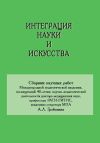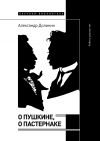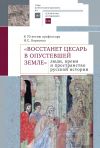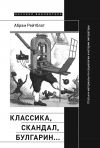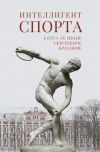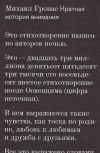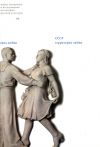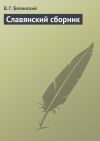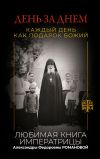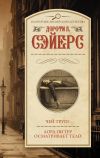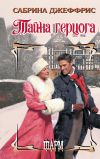Текст книги "И время и место: Историко-филологический сборник к шестидесятилетию Александра Львовича Осповата"

Автор книги: Сборник статей
Жанр: Языкознание, Наука и Образование
Возрастные ограничения: +16
сообщить о неприемлемом содержимом
Текущая страница: 9 (всего у книги 58 страниц) [доступный отрывок для чтения: 14 страниц]
Yet another episode involved Marie Smith, a young widow who was living in the Engelhardt household and participating in school theatricals. Predictably, Pushkin was smitten with her comeliness and before long wrote her a poem, “To a Young Widow” (K molodoi vdove), in which he urged her to forget the dead, as they will not return, and celebrate life with the living. The verses seemed more than a little irreverent, which was the point. In any event, this lady too was offended, but what made the contretemps particularly awkward was the fact that Marie Smith was pregnant. She expressed her indignation to Egor Antonovich, who himself may not have been indifferent to her, and he censured Pushkin for it. Finally, a misadventure without amorous overtones is the one that has come down in Lyceum lore as the “gogel’-mogel”’ affair of 1814. This time three boys, Pushkin, Pushchin, and Malinovskii, smuggled a bottle of rum into the building with the help of Foma, one of the diad’-ki. They then created a grog-like concoction of eggs, sugar, and alcohol which they heated in the samovar. Muffled laughter and noise could be heard from the hall, which brought Frolov, the on-duty tutor, to the scene to investigate. The conspirators had enough time to toss their wine glasses out the window and disappear to their rooms, but one of them, Aleksandr Tyrkov, was discovered clearly in his cups (1,132–133). Frolov told the director, who then reported it to the Minister of Education, Count Razumovskii, the senior state official in charge of the Lyceum. Razumovskii came in person from St. Petersburg, called the boys out of class and gave them a severe reprimand, with the punishment to follow – two weeks on their knees throughout morning and evening prayer services, placement at the end of the dining table, and a sentence citing their names and a description of their crime in the school’s black book.7 Despite the apparent seriousness of the offense, Pushkin wrote another impromptu ditty, this one taking the hussar Denis Davydov’s rollicking call to wine and women as its model, in which it is not sobriety that is banished but Foma the diad’ka, who was let go for his part in the affair.
So, against this background of Lyceum comradeship and shared experience how did the mercurial schoolboy begin to become, to quote Nabokov, “Russia’s most essential and most European” writer, “the greatest poet of his time (and perhaps of all time, excepting Shakespeare)”?8 Perhaps the first thing that alerts us to the youngster’s potential uniqueness is his receptiveness to the creative impulse, to the way that sound and sense suddenly come together in his consciousness and then are born into (zarozhdenie tvorchestva) something altogether different and mesmerizing.9 Pushkin, let us recall, has forever been associated with “harmonious sounds” (garmonicheskie zvuki, which subsequent scholars have duly linked to the influences of Batiushkov and Zhukovskii) and a free, unfettered intonation (intonatsiia). But even here the freedom with which he is able to say something seems in excess of anything he could have learned from respected older contemporaries. This is how he presents the onset of the rhyming urge in “To My Aristarchus” (Moemu Aristarkhu, 1815):
Сижу ли с добрыми друзьями,
Лежу ль в постеле пуховой,
Брожу ль над тихими водами
В дубраве темной и глухой,
Задумаюсь – взмахну руками,
На рифмах вдруг заговорю…
(1,153)
[I can be sitting with good friends,
Or lying in a feather bed,
Or wandering near quiet waters
In an oak grove dark and deserted,
When I fall to musing, wave my arms,
And suddenly start to speak in rhyme…]
The process comes over the speaker unbidden, and this very unbidden quality is signaled by the simplicity and parallelism/internal order of the utterance (i.e. it is natural, organic): the three imperfective verbs (“sizhu,” “lezhu,” “brozhu”) followed by three locative constructions denoting uninterrupted activity are then broken into by the three perfective verbs (“zadumaius,” “vzmakhnu,” “zagovoriu”) betokening a change in status. That the initiation of the verbal rush is preceded by a physical gesture (“vzmakhnu rukami”) reinforces the seemingly spontaneous, almost “metabolic” character of the shift to creative activity. And so it will be Pushkins entire poetic career. Examples are too numerous to list here, hence we will limit ourselves to the following excerpt from the great meditative poem,“Osen (Otryvok)” (Autumn [AFragment], 1833):
X
…
Душа стесняется лирическим волненьем,
Трепещет и звучит, и ищет, как во сне,
Излиться наконец свободным проявленьем —
…
XI
И мысли в голове волнуются в отваге,
И рифмы легкие навстречу им бегут,
И пальцы просятся к перу, перо к бумаге,
Минута – и стихи свободно потекут.
…
XII
…Куда ж нам плыть?…….
……………………………
……………………………
(III, 321; my emphasis)
X
The soul is overwhelmed by lyrical agitation,
It trembles and sounds aloud, and seeks, as in a dream,
To pour itself out at last in a free display —
…
XI
And thoughts in one’s head surge in brave agitation,
And light rhymes go out to meet them,
And one’s fingers ask for the pen, the pen for paper,
Wait a minute and verses begin to flow freely.
…
XII
.. Where shall we sail?…….
……………………………..
……………………………..
Once again Pushkin aligns the lyrical urge, the need to express the harmony accumulating within, with something physical, concrete – the fingers reaching out for the pen and the pen seeking the paper.
The second thing we immediately notice, which is tied to the unconstrained quality of his intonation, is the young Pushkin s astonishing genre dexterity, where each genre equals a distinct voice, style, lexicon, poetic structure. This facility with different ways of saying things poetically could be an aspect of the legacy of parlor games and wordplay that the boy absorbed in the presence of his parents (Sergei L’vovich was known in the literary salons of St. Petersburg as a kind of verbal quick-change artist) and their friends. In any event, for his classes and on his own Pushkin tried his hand at all the different types of poem practiced at the time. Madrigal, noël, elegy, friendly epistle, epitaph, Anacreontica, ode, romance, hussar drinking song, epic, love lyric – he fit into each of these effortlessly. It was as though he were trying on a new costume with each one and took delight in cavorting before the mirror.10 His ability to mimic, to ventriloquize the voice zone of the genre, was what separated him from the others.11 In other words, he had the poetic equivalent of perfect pitch. An illustration shows the difference between Pushkin and his mates in this respect. Illichevskii loved to create anagrams, or in his terms, “charade logogriphs,” that acted out a word in the form of a riddle. These puzzles were then included in The Lyceum Sage (Litseiskii mudrets), one of the school’s several journals, which everyone read and in which Pushkin took active part. In one such anagram Illichevskii describes three items without naming them which when combined would decorate a gravesite – something bundled together (kipa = “stack”), a legendary, though faint-hearted warrior (Paris), and a type of food (ris = “rice”). The answer yields kiparis, or “cypress tree.”12 Illichevskii’s riddle is self-contained (there is nothing extraneous to it) and shows beautifully how these bright young students came at language.
But in Pushkin’s wordplay there was invariably a kind of challenge. In 1816 he came up with his own charade entitled “Comparison” (Sravnenie):
He хочешь ли узнать, моя драгая,
Какая разница меж Буало и мной?
У Депрео была лишь, [запятая]
А у меня: с, [две точки с запятой]13
The solution to this riddle is more racy, more “Pushkinian,” than Illichevskii’s cypress tree. Here Pushkin is referring to an episode from Boileau’s childhood that he would have immediately picked up on.14 Helvetius tells the story that once when very young Boileau fell down, which movement raised his smock and exposed him. At that moment a turkey pecked him several times in the groin, leaving him without his “two periods” and intensely fearful of women his entire life. Thus what the sixteen-year-old Pushkin is telling his listener, “my sweetheart,” is that he is endowed with all the necessary punctuation marks (both the “comma” and the “periods”) to be a good lover. And yet the words for “comma” and “period” are not spelled out; they are simply left as marks on the line. The reader must see them and sound them out to make the rhymes. The riddle is witty, salacious, and a kind of challenge all at the same time.
Another more elaborate example is the “philosophical ode” entitled “Moustaches” (Usy) of 1816.15 In this humorous send-up of the ultra-serious odic genre Pushkin tries on two voices, one the older Derzhavin’s, the other the hussar officer and war hero Denis Davydov’s. Davydov was renowned for his flamboyantly bushy moustaches, which he was forever twirling. The moustache was the most salient attribute of the hussar; it was as though all the hussar’s legendary daring (udaV) was located in this hirsute outgrowth, as the biblical Samson’s strength was reputed to be in his hair. The poem opens with the voice of Derzhavin warning Davydov, in the phrasing of Derzhavin’s most famous valedictory lines, that the river of time (reka vremen) sweeps everything away in its path. Then, for the next several stanzas, the voice zone of Davydov, though still the addressee, takes over. Now we see the moustache through the eyes of its owner and his personal mythology: it is so long it wraps around his ear; it is sprinkled with rum and wine; glistening with kohl (hair crème), it has never known the razor; in the heat of battle, it helps its owner keep a cool head, as he grabs a saber in one hand and his hairy talisman in the other; and then, when more peaceful times have come, it accompanies the hussar in his conquests of the fair sex, as again one hand caresses the breast of a beauty and the other twirls the moustache. This is all very funny and very much in the spirit of hussar bravado. In the last stanza, however, as expected, there is a turn back to the viewpoint of Derzhavin, who reminds the dashing warrior and lover that his ruddy cheeks will fade, his black curls will turn grey, and – the punch line – old age will pluck out his moustaches. The point here is this is neither Derzhavin nor Davydov talking, although the recording of their voices is virtually perfect. It is Pushkin, the fledgling, who either has no moustache or only the beginning of one. He uses both voices against each other in order to assert his own, which plays behind the scenes and is present in the humor and, equally important, the implicit challenge. I see youth and age, says this voice; I am the confidence that doesn’t take sides and can make a joke out of their claims to ultimate authority.
There is one genre at which Pushkin failed miserably during these apprentice years – the love lyric – and there is good reason. Almost none of the poems he wrote about love as a teenager did he include in his first book of collected verse that appeared in 1826. However well Pushkin masters the conventional phrasing and poetic form, what is “his” cannot not yet stand out in this context. The wit that is already his trademark in his humorous verse can get no foothold in the flood of hot feelings that is adolescence. In his verses to Ekaterina Bakunina, the older sister of a classmate, his language is one-sidedly elegiac:
Итак, я счастлив был, итак, я наслаждался,
Отрадой тихою, восторгом упивался…
И где веселья быстрый день?
Промчался летом сновиденья,
Увяла прелесть наслажденья,
И снова вкруг меня угрюмой скуки тень!
(1,148)
[And thus, I was happy, and thus, I took pleasure
In quiet bliss, drinking ecstasy to the full…
And where now is the fleeting day’s joy?
It bas flown
It has flown by like a dream,
Pleasure’s charm has faded,
And again I am surrounded by the shadow of gloomy boredom!]
Translation: Pushkin has probably just bumped into Bakunina somewhere on the stairs and is sorting through the impressions created by this passing vision in a black dress, as he describes it in a diary entry of 19 November 1815. “How charming she was! <… > But I have not seen her for eighteen hours – ah! What a situation, what torture – But I was happy for five minutes” (XII, 297). This poet who would write some of the most beautiful love lyrics in any language would need the ballast of lived experience to bring the conventional phrasing, the rhetorical and prosodic expectations, alive. One adjective in a normally fixed phrase would be switched, one line would break away slightly from the corset of meter to the free dance of rhythm, and the reader/listener would immediately sense that here is mature passion, passion informed by the beauty and sorrow of a fully lived life. But change the conceit of the piece from love as an elevated feeling to eros as tease and titillation, and the schoolboy was back again in his element. Here he is, for example, not describing love in an elegy but what it would feel like to be the tobacco in a pretty womans snuffbox in a madrigal:
Ax! если, превращенный в прах,
И в табакерке, в заточеньи,
Я в персты нежные твои попасться мог,
Тогда б в сердечном восхищеньи
Рассыпался на грудь под шелковый платок
И даже… может быть… Но что! мечта пустая.
Не будет этого никак.
Судьба завистливая, злая!
Ах, отчего я не табак!..
(1,45)
[Ah! If I, turned into dust <i.e.,tobacco>,
And kept in a snuff-box, in captivity,
Could land on your sweet fingers,
Then in heartfelt rapture
Would I sprinkle out onto your breast under your silk shawl
And even… perhaps… But no! It is a hollow dream
And will in no way happen.
О evil, envious Fate!
Why can’t I be tobacco!..]
At the core of the gradual change that took place in Pushkin over the Lyceum years is the fact that he never seemed to experience what might be seen from the perspective of later generations as linguistic fear. That is crucial. We also must suppose that Shakespeare, despite what little we know about him, was fearless in this way. This did not mean that words always came easily to Pushkin or that he didn’t struggle over drafts of things, which his subsequent notebooks prove beyond a doubt, but simply that he believed his language was equal to the task of saying what it needed to. His fears and anxieties were real, which is also crucial, but they were not strictly linguistic. It was the world that Pushkin looked out on from his “monk’s cell” at the Lyceum, not just the literary world, or (this would come later) the professional world of letters. It is a fine point, but a not insignificant one. This is another way of saying that if Pushkin is Russian literature’s “origin without origins,” which he is, the true beginning of the culture’s modern linguistic consciousness, which he is as well, then it is because what stirred him was not his battles with literary precursors. He knew the tradition was there and he knew it was his task to find a place in it, but his engagement was with other, bigger ghosts: his frail hold on life as a Russian in the early years of the nineteenth century, the fact that he was difficult to love and he knew it, Russian history’s claims to legitimacy against a background of European and more particularly French military and cultural domination, the heroes from the past whose spirits hung about the Cameron Gallery and the monuments to military victories. And underlying all this was a burning curiosity and impatience that was colored with superstition but not religious belief per se. Pushkin was not and never would be a confirmed unbeliever; in a world so full of charm and beauty, he could not give himself to any authority – except his poetry – completely, up to and including the ultimate authority of Russian Orthodoxy or its opposite, atheism. As he writes in the 1817 poem, “Unbelief” (Bezverie), the closest thing to a cri de cœur during the Lyceum years, “Mind seeks the Godhead, but the heart does not find it” (Um ishchet bozhestva, a serdtse ne nakhodit) (I, 243). This does not mean that Pushkin is asserting that God does not exist, only that he, his heart, that part of him that feels, cannot find him yet in his young life. And so it would always be. As Pushkin says in a poem written several months before his death:
Напрасно я бегу к сионским высотам,
Грех алчный гонится за мною по пятам…
Так, ноздри пыльные уткнув в песок сыпучий,
Голодный лев следит оленя бег пахучий.
(III,419)
[In vain do I run up to the heights of Zion,
Greedy sin follows fast on my tracks…
Thus, its dusty nostrils stuck into the crumbling sand,
Does the hungry lion follow the scent of the deer.]
Note that Pushkin is painfully aware of his sin and its consequences, which presupposes not just an understanding but an acceptance of the difference between right and wrong.
Thus, and this is my principal argument in these pages, Pushkin is intensely superstitious, but not religious, in a distinctive Russian way. This superstitiousness is a trait that goes perfectly with, precisely because it is so different from, the enlightenment principles, beginning with liberté, égalité, fraternité, that he inherited at the Lyceum. Without the Lyceum Pushkin might have become another rather talented, though frivolous, versifier like his father or uncle. Without superstition (again, the “religion” of poetry, or at least his poetry) he might have become a government official, like Iakovlev, or military officer, like Matiushkin, or Decembrist, like Pushchin. The superstitious person is the card player, the gambler, which Pushkin also started to become at school. He would play cards passionately, and badly, his entire life, many times getting deeper into debt at moments when he needed money most. Superstition is the agnostic’s, not the atheist’s, religion. One follows certain rituals and procedures (recall the scene of fortune-telling that brings on Tatiana’s prophetic dream in Eugene Onegin) just in case they might help, but not because one is certain they will. This is also how poets engage otherworldly forces, now challenging them, now coaxing them, as Pushkin also started doing in earnest at the Lyceum.
I would also argue that it was during these Lyceum years that Pushkin’s verbal role-playing became something more momentous. Now it began to involve what might be called ontological rhymes. His challenges to Derzhavin and Davydov were playful, but they had the potential to become serious, particularly if the object of the challenge was a dead authority figure. Note that Derzhavin would die within a year of his “annointing” Pushkin as his successor. In that period not only did Pushkin ventriloquize Derzhavin’s voice perfectly in Reminiscences at Tsarskoe Selo (Vospominaniia v Tsarskom Sele, 1814), but he also managed to parody the old man’s odic sputterings in the unpublished Fonvizins Shade (Ten Fonvizina, 1815). In fact, in the latter work the playful schoolboy seemed to give his benefactor a push, claiming that Derzhavin and his fustian rhetoric had outlived their time. All this gave the generational confrontation a “ghost story” quality that appealed to Pushkin’s sense of fate, risk, chance. It was as if the mastery at one level (the first member of the rhyme pair) was so complete that it implied an act of usurpation that carried beyond the poem (the second member of the rhyme pair, i.e., the “other shoe” still waiting to drop). This was happening even as Pushkin was spouting epigrams at any and all who happened to thwart him or assert their authority over him. By taking chances, by not looking before he leapt, Pushkin learned another lesson. He came to understand that his challenges had consequences, not merely in this world, but more importantly, in the next. His acts of language became totemic, mythopoetical, capable of creating plot in life. For the shades of those who had departed (think how many ghosts and shades there are in Pushkin’s poetic world) could not stand to be mocked – there was something blasphemous in this, something that called punishment down on own’s head, which the boy also knew perfectly well. But he could not help himself from mocking, that was how he asserted himself, made a place for himself at the table.
Therefore, when Pushkin says in the poem to Marie Smith that the dead husband is sleeping soundly in the grave and will not return should they take their pleasure in the here and now, he is really whistling in the dark. With superstitious awe he senses that the ghost may well return to punish him because he, the pretender, deserves to be haunted. We can say this because that is precisely the plot of one of Pushkin’s greatest masterpieces, The Stone Guest (Kamennyi gost 1830), written thirteen years later on the eve of the poet’s own marriage and telling the story of how Don Juan is dragged off to hell by the statue of the man he has killed and in the presence of the widow he was about to enjoy. The part of the puzzle that is missing is beyond of the page so to speak, somewhere in the future. The poet has set the action in motion by desiring the widow in the first place and mocking the one who has the moral right to her in the second. He can’t help himself but he knows it is wrong. He is Davydov and Derzhavin at the same time. Language is his power,but it is his only power – a distinctly modern concept. In short, Illichevskii’s play with language gives us a riddle plain and simple; Pushkin’s play with language gives us a ghost story that is a secret map to our darkest desires and fears. Pushkin knows that potentially the joke is on Pushkin, and that is why he became the closest thing in Russian to Shakespeare.
